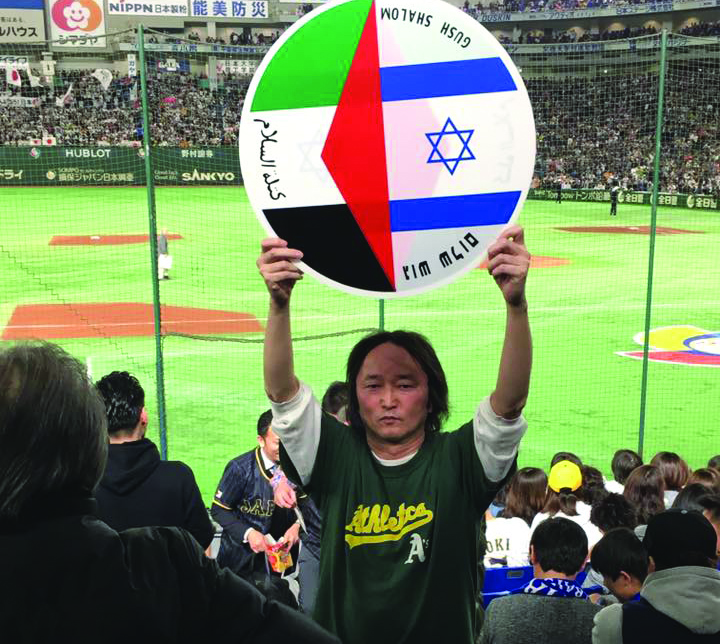
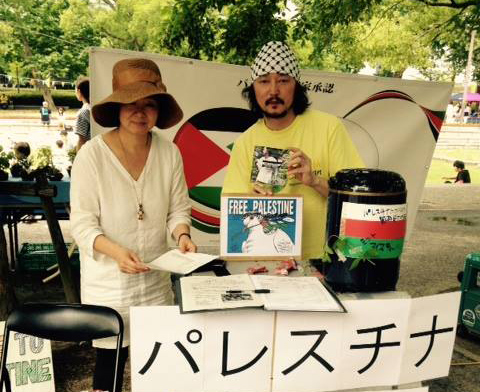
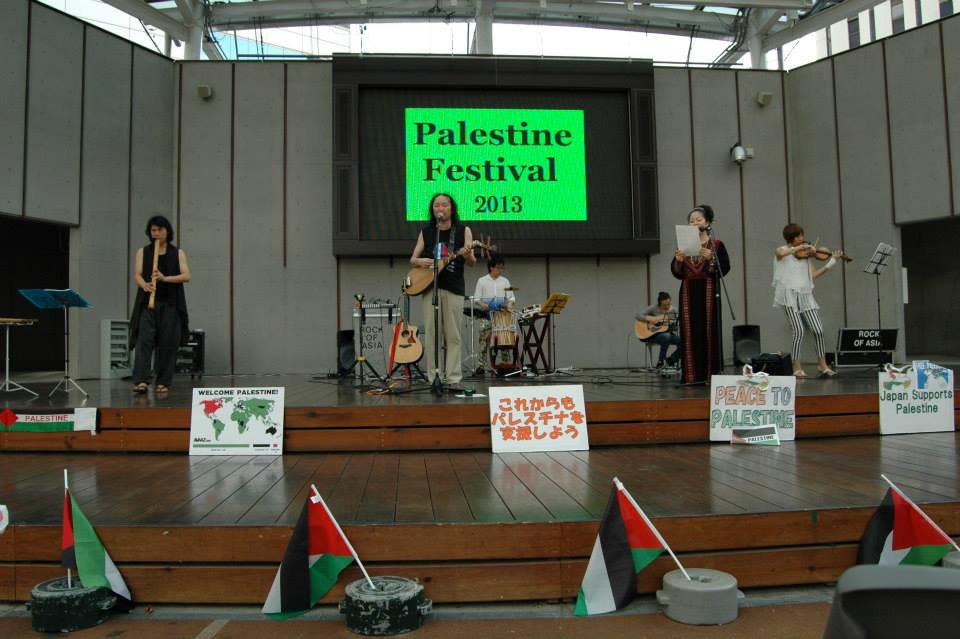
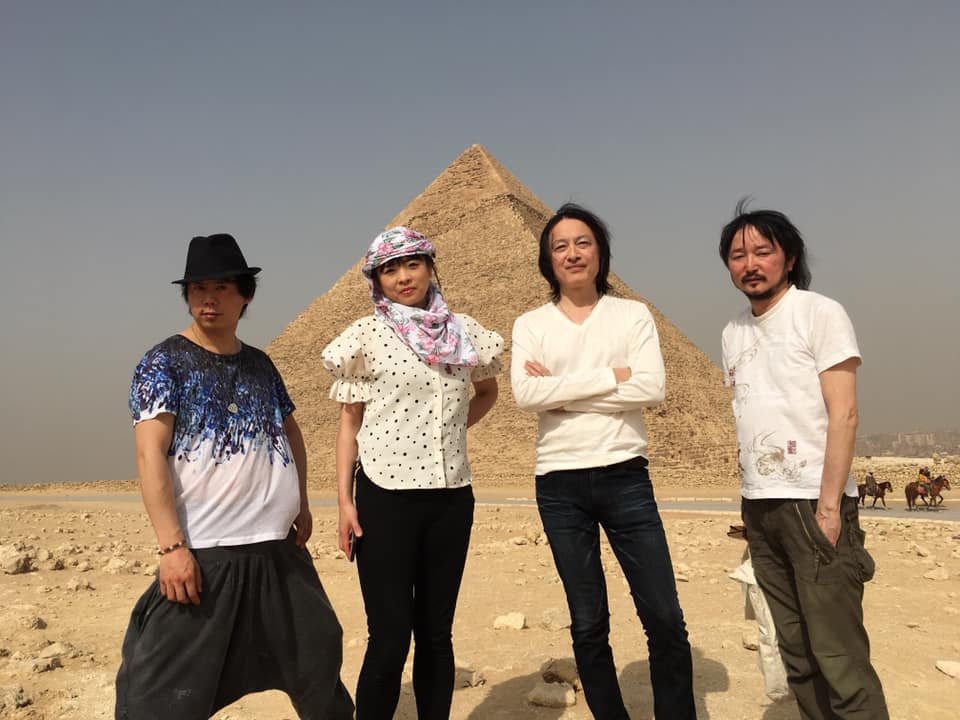
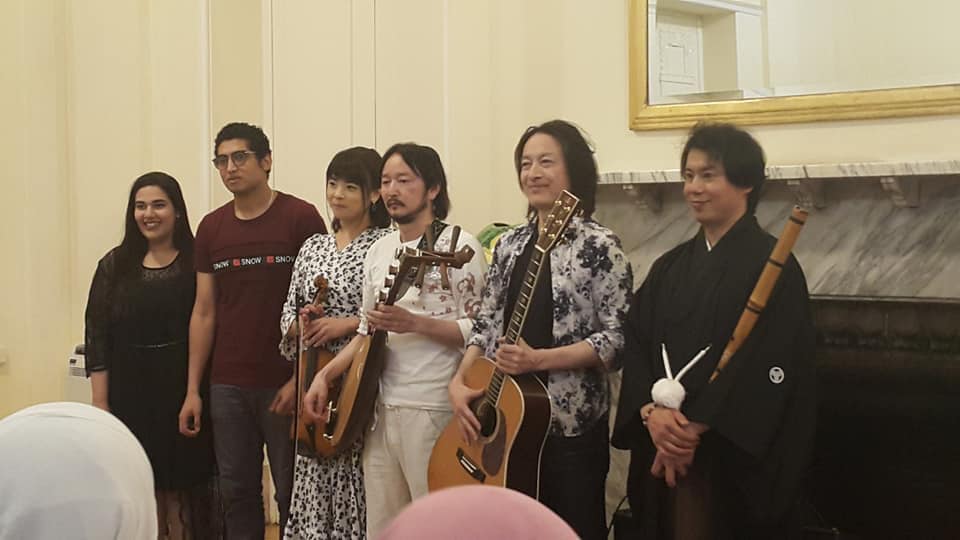





Nader Sammouri
The Middle East has often been associated with instability and posed as a place full of ‘red lights’ to many Japanese people, but to a few, particularly those with a fervor to seek the truth of what is occurring in the world, perceive the “green lights” that it has to offer.
As opposed to red lights, which suggest dormancy, green lights invite constant motion, seeking and learning.
Nikki Matsumoto, 57, was able rebound from poverty and an abusive childhood by delving into several career paths and creating his own business.
“My relationship with my father wasn’t healthy at all. My father used to beat me up, calling me stupid whenever I had books in front of me. I think his anger may have been related to the fact that his house was bombarded during WWII when he was a college student. The US occupation of Japan and its violent oppression is how I got to relate to the occupation of Palestine and being forced to obey a violent authority with no choice,” Matsumoto said.
Born and raised in a medium-sized town named Saitama in Japan, Matsumoto explains how his troubled relationship with is father led him to leave his hometown and move to the United States at the age of 18 to embark on 15-year-journey that changed the course of his life.
“I suddenly found myself at a melting pot of cultures and races with so many layers of human derivatives. Swiftly, I am staring at a life catalogue of human possibilities, daily flipping through its pages. That certainly opened my eyes to the world,” Matsumoto said, elaborating on his time in the US, which involved encountering people from various backgrounds.
In the US, Matsumoto became a musician that sang and played the guitar, but underwent several challenges in the process, one of which involved encountering racism.
“Racism exists everywhere. I was discriminated against and told by several Americans that I shouldn’t be playing the guitar because I wouldn’t be good at it as a Japanese. I had to fight with my identity, explore my self-image and question who I am versus how I am being perceived,” Matsumoto said.
Having previously experienced the consequences of the US occupation in Japan, followed by the discrimination he faced in the US, Matsumoto’s interest in political affairs grew, with a specific affinity towards the Palestinian cause, which he empathized with. During this time, he began to educate himself about the Middle East by reading books about it in attempt to gain knowledge about its underlying issues and the root causes of its problems. In doing so, Matsumoto’s advocacy for Palestine gradually started to take form.
“I remember meeting a Lebanese girl in an English class in the US when I first got there in 1981. She told me her story of escaping the civil war and the Israeli bombings on Lebanon. Another nudge I received was when I was walking past the campus and saw a few Arab students demonstrating for the assassination of the Egyptian president Sadat. That was another trigger that got me interested in what was happening in the Middle-East region,” Matsumoto said.
At the age of 33, Matsumoto decided to return to Japan to resolve his relationship with his parents, but the place he once knew so well seemed different and he felt like an outsider. His attempt to rekindle his relationship with his parents was eventually unsuccessful as being faced with their insistent judgment had decreased his sense of freedom, causing their connection to crumble once again and forced him to take the decision to move out of the house.
“I became homeless and slept in the park and cheap hotels for almost four months. I had an empty bank account and no friends to talk to. It was a do-or-die situation,” Matsumoto said.
In attempt to create a new foundation for himself, Matsumoto ventured into the creation of his own business. He began to visit many of the embassies in Tokyo and finally got contracted as an IT engineer at the Embassy of Mexico. This was followed by contracting projects in the embassy of Sri Lanka, India and Egypt. After the completion of these projects, his business started to flourish.
“Then I got to the “Palestine general office” as they call it here, and got close to the ambassador of Palestine, Mr. Walid Siyam. I have known him for 14 years now,” Matsumoto reminisced.
While working from home has now become the norm, Matsumoto started doing so 18 years ago with his home-based IT business that he developed after living on the streets for a while.
“It is not easy to make money in the music industry, so I started my own IT business where I provide technical solutions, mainly connecting networks and configuring data, which provides me with my main source income. That grants me the time I need to fulfill my purpose in volunteering,” Matsumoto said.
Matsumoto has been visiting Palestine once every year for the past nine years. He volunteers to do humanitarian workthere, which includes playing music with his band to offer Palestinians a sense of encouragement and support.
“I first visited Palestine in 2012 with my band of five people. We were very welcomed. The Palestinian ambassador liked our performance, and the government paid for our hotels. The Japanese government, on the other hand, paid for our airplane tickets. Other costs lied on our shoulders, so it actually costed us to perform in Palestine, but we did it out of love,” Matsumoto said.
“I promised president Abbas to do more to help his country and write songs to the Palestinians and encourage them, and so I did,” he added.
In 2013, Matsumoto met the Palestinian President Mahmoud Abbas and was invited to his presidential palace. He then made a CD of six songs and called it ‘Palestine on my mind’.
It all started with a wish that Matsumoto made to make the world a better place.
“Clashing countries and people hating each other have been going on for a long time. I wanted to make the best of myself to help people,” Matsumoto said.
Matsumoto sings in English because he wants to make his message heard globally.
“I sang for peace for the past 35 years. Music moves people and encourages them to act. I think the Palestine issue is a massive problem for all of us,” Matsumoto said.
Despite the progression of his career, Matsumoto never forgot his homeless days, and with COVID prohibiting him from visiting Palestine, his instinct to put forth good energy into the world pressed him to go out on midnights and provide free meals, drinks and clothes for the homeless people of Tokyo on a frequent basis.

“I am privileged to have the time and money to help people. It was a great time to leave Japan when I did, and being homeless granted me several benefits. I think I am a lucky person,” Matsumoto said.
In a world that may sometimes seem hopeless, people like Matsumoto serve as a reminder of human goodness and the need for more people that are concerned with the establishment of a moral balance.